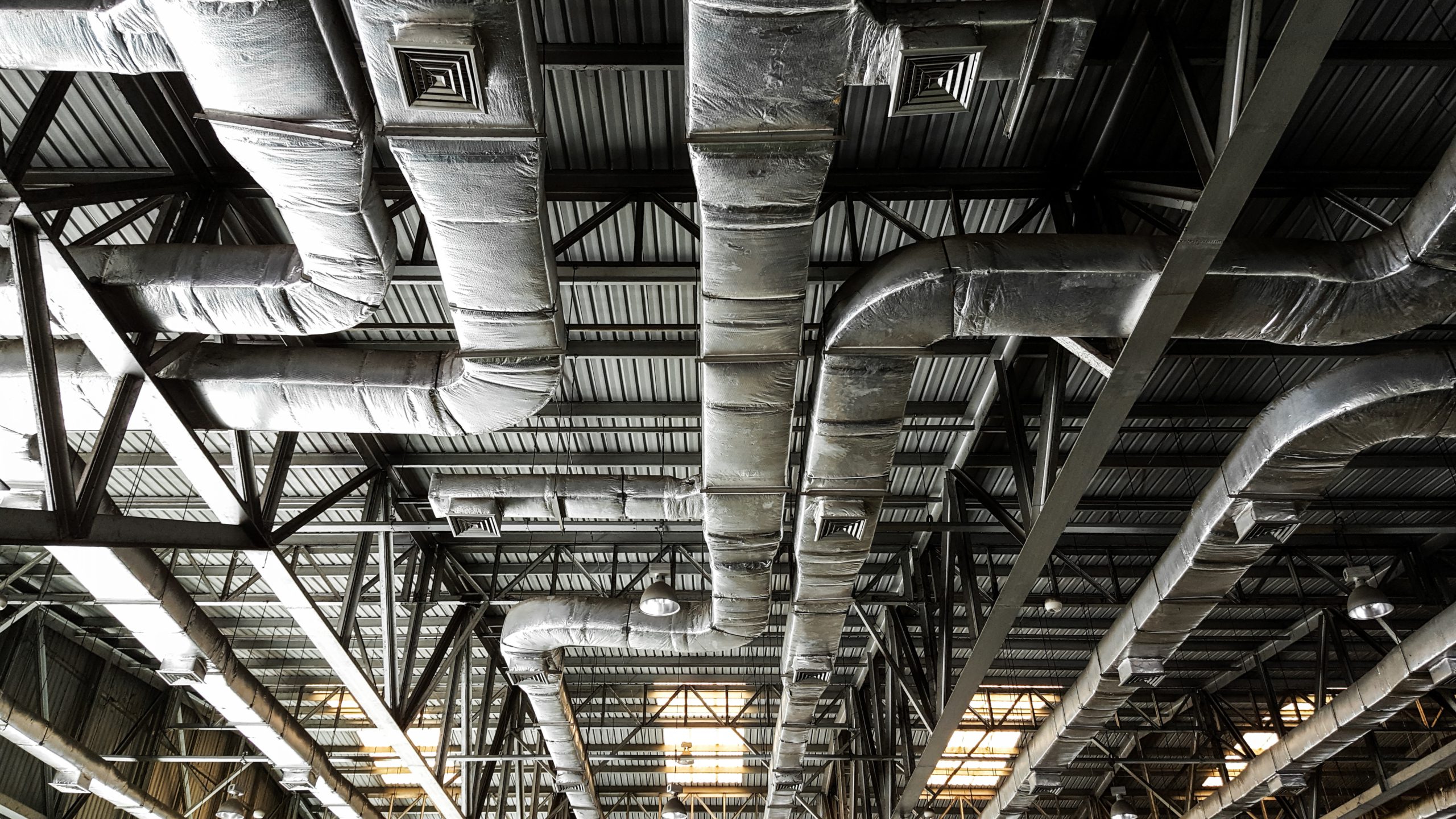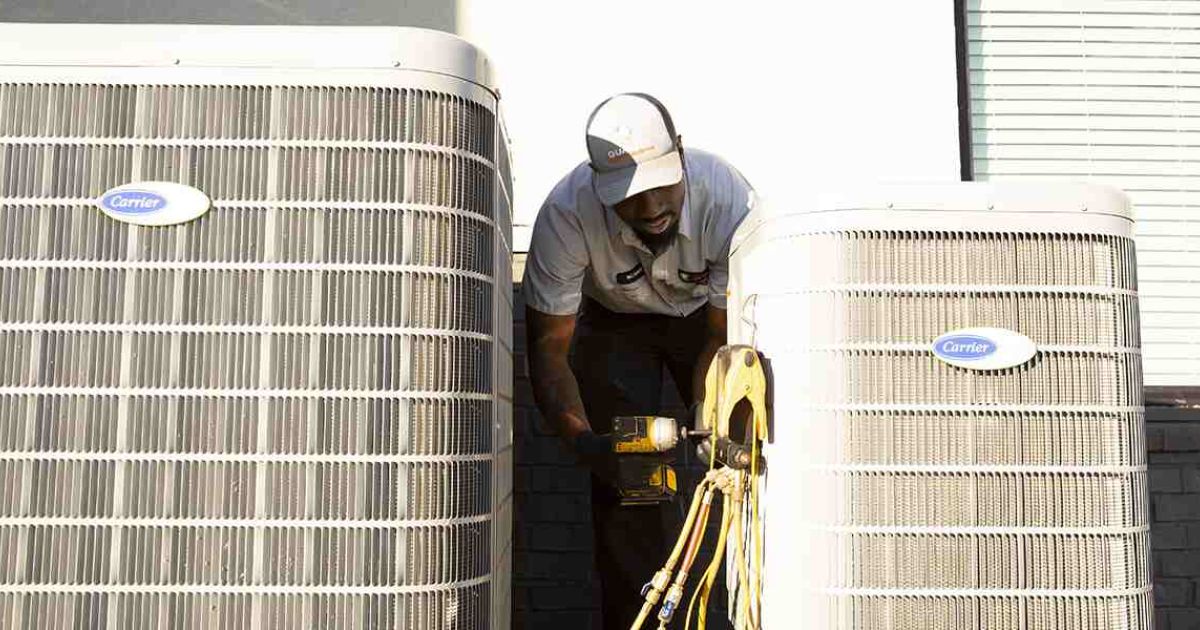Residential Heating and Air Conditioning Solutions for Year-Round Comfort
Residential Heating and Air Conditioning Solutions for Year-Round Comfort
Blog Article
A Comprehensive Look at Heating And Cooling Providers and Their Impact on Energy Efficiency and Price Savings
The role of HVAC services in improving power efficiency and achieving cost savings is much more essential than ever before, as services and home owners look for lasting options in a progressively eco-conscious world. With technical advancements like wise thermostats and high-efficiency components, the potential for enhancing system efficiency is large. Yet, real impact of these developments depends mostly on routine maintenance and proactive problem monitoring. As we explore the intricate partnership in between a/c systems and functional costs, including the change towards eco-friendly alternatives, the inquiry occurs: how can these strategies be successfully carried out to optimize both financial and ecological benefits?

Value of HVAC Equipments
a/c systems are a crucial component of contemporary buildings, playing a crucial role in preserving comfy and healthy and balanced interior environments. These systems, including heating, air flow, and air conditioning, are necessary for regulating temperature level, humidity, and air high quality, thereby making certain the well-being of residents. Reliable HVAC systems add significantly to developing an optimum interior climate, which is essential for both property and commercial areas.
In industrial buildings, cooling and heating systems are important to offering a safe and effective setting. By regulating interior climate problems, these systems help prevent the development of mold and mildew and the spread of air-borne contaminants, thus securing the health of clients and workers. Furthermore, in household setups, heating and cooling systems improve living conditions by offering regular thermal convenience and enhancing interior air high quality, which is crucial for total health and wellness.
Additionally, the design and maintenance of HVAC systems have a direct influence on energy usage and operational costs. Appropriately made and preserved systems can dramatically lower energy usage, causing reduced energy bills and a smaller carbon impact. The effectiveness of these systems thus plays a vital function in promoting sustainability and power conservation within buildings, highlighting their importance in the modern-day architectural landscape.
Developments in HVAC Technology
Advancement in heating and cooling technology is revolutionizing the way buildings handle indoor environments, ushering in a new era of effectiveness and control. Recent innovations have actually focused on maximizing energy intake while boosting customer convenience. One noteworthy development is the combination of wise thermostats, which make use of man-made knowledge to learn tenancy patterns and readjust temperature levels appropriately, reducing unneeded power usage.
Variable Refrigerant Flow (VRF) systems represent an additional significant leap onward. These systems enable exact temperature control in various areas of a building, boosting comfort and minimizing power waste. VRF modern technology is especially advantageous for large industrial rooms, providing flexibility and scalability.
Furthermore, the introduction of Web of Points (IoT) gadgets has actually changed HVAC systems right into interconnected networks efficient in real-time data collection and analysis. This connection makes it possible for predictive maintenance, making sure systems run at peak effectiveness and lessening unforeseen downtime.
Moreover, advancements in products and design, such as using high-efficiency coils and compressors, have actually improved total system performance - Heating Contractor. The fostering of eco-friendly refrigerants likewise highlights the industry's dedication to sustainability
These technological technologies are essential in decreasing operational prices and environmental impact, setting new criteria for building environment monitoring.
A/c Maintenance and Efficiency
Making sure ideal performance of a/c systems expands beyond technological improvements; it also depends upon reliable maintenance practices. Routine upkeep is critical for sustaining performance, reducing energy intake, and expanding the life expectancy of HVAC systems. The main objective is to ensure that all components operate at their peak potential, therefore decreasing energy waste and keeping consistent indoor convenience degrees.
Routine sites upkeep tasks, such as cleaning or changing air filters, checking cooling agent degrees, and inspecting ductwork for leakages, are essential for stopping unneeded pressure on the system. Clogged or dirty filters can block air flow, triggering the system to function tougher and eat more energy. Furthermore, poor refrigerant degrees can decrease cooling down efficiency, causing greater operational expenses.
Additionally, regular examinations by certified specialists can identify possible issues prior to they escalate right into expensive repair services or system failings. These evaluations usually consist of examining electric links, calibrating thermostats, and making certain the general integrity of the cooling and heating system. By attending to minor problems early, companies and home owners can stay clear of unforeseen failures and improve power effectiveness.
Affordable A/c Solutions
For those seeking to obtain the most out of their air, ventilation, and home heating conditioning systems without damaging the financial institution, discovering affordable a/c services can make a significant distinction. One prompt step is to buy programmable thermostats, which permit individuals to establish particular temperature levels for different times of the day, optimizing energy use and minimizing unneeded intake. By automating temperature level adjustments, property owners can attain substantial financial savings on energy bills.
Regular upkeep is another important element of cost-efficient heating and cooling management. Making sure that filters are cleaned up or changed regularly, ductwork is secured, and units are serviced by experts can stop expensive repairs and improve system durability. Preventative upkeep not only maintains system efficiency yet likewise aids in avoiding unexpected failures that can result in expensive emergency repair services.
Additionally, retrofitting existing systems with energy-efficient elements, such as variable speed electric motors or high-efficiency compressors, can be a sensible investment. These upgrades improve operational efficiency, lower power usage, and can typically be carried out at a portion of the expense of a full system replacement.
Environmental Effect Reduction
Decreasing the ecological impact of cooling and heating systems is essential in today's click to find out more quest of sustainable living. Cooling and heating systems are significant factors to power intake, accounting for almost 40% of power usage in industrial structures. This energy demand frequently depends on fossil gas, bring about greenhouse gas exhausts and ecological degradation. Transitioning to extra reliable systems, such as those utilizing renewable resource sources, can substantially minimize these influences.
Technical advancements in cooling and heating style and procedure, consisting of the integration of wise thermostats and energy-efficient heat pumps, are critical in minimizing carbon footprints. These developments permit optimized power use, reducing wastage and improving general system efficiency. In addition, embracing routine upkeep techniques makes certain cooling and heating systems run at peak efficiency, additional curtailing unnecessary power consumption.
Moreover, using ecologically pleasant cooling agents is essential, as traditional refrigerants, like CFCs and HCFCs, have been terminated due to their ozone-depleting buildings. Modern alternatives, such as hydrofluoroolefins (HFOs), offer lowered environmental dangers, straightening with international environmental protocols. By accepting these sustainable techniques, cooling and heating services can play a transformative duty in lowering ecological impacts, promoting energy efficiency, and cultivating a much more lasting future.
Final Thought

In addition, the right here design and maintenance of HVAC systems have a straight influence on energy consumption and functional prices. Normal upkeep is critical for maintaining efficiency, decreasing energy consumption, and prolonging the life span of A/c systems. HVAC systems are significant factors to power consumption, accounting for virtually 40% of power use in business buildings. Furthermore, adopting routine upkeep techniques makes sure Heating and cooling systems run at peak performance, more curtailing unnecessary energy consumption.
The transition to ecologically pleasant Cooling and heating systems even more promotes and minimizes functional costs sustainability. (Heating Contractor)
Report this page